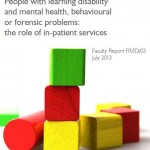
In February this year, we posted about new summary information sheets produced by the challenging behaviour foundation. This month sees the launch of a new series of three information sheets which look at the causes of challenging behaviour, and explain how to make effective plans to reduce it. The information sheets are designed to provide [read the full story…]









